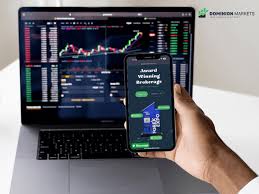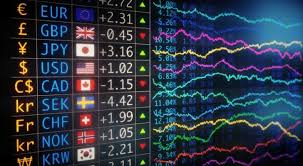
The Forex Trading Business: Strategies, Tools, and Opportunities
In today’s fast-paced financial landscape, the forex trading business Indian Trading Platforms have become essential for engaging in the lucrative forex trading business. Forex trading, or foreign exchange trading, allows individuals and institutions to buy and sell currencies, taking advantage of fluctuations in exchange rates. This article will delve into the intricacies of forex trading, providing insights into strategies, tools, and the opportunities that this market offers.
Understanding Forex Trading
Forex trading involves the exchange of one currency for another with the goal of making a profit. Unlike stock markets, the forex market operates 24 hours a day, five days a week, allowing traders to participate at their convenience. This decentralized market is the largest in the world, with trillions of dollars traded daily. Several factors affect currency values, including economic data releases, political events, and market sentiment.
The Basics of Forex Trading
For those new to forex trading, it’s important to understand basic concepts such as currency pairs, pips, and leverage. Currency pairs consist of two currencies; for example, the EUR/USD pair represents the Euro against the US Dollar. Each currency pair has a bid price (the price at which you can sell the base currency) and an ask price (the price at which you can buy the base currency). A pip is the smallest price movement that a given exchange rate can make. Leverage allows traders to control larger positions than their actual capital would allow, which can amplify both gains and losses.
Choosing a Forex Trading Strategy
Success in forex trading often boils down to a trader’s ability to develop a sound trading strategy. There are several popular strategies, including:

- Scalping: This involves making numerous trades throughout a day to capture small price movements. Scalpers aim to end the day with profits from small incremental gains.
- Day Trading: Day traders buy and sell currencies within a single trading day, closing all positions before the market closes to avoid overnight risk.
- Swing Trading: This strategy is focused on capturing price swings over multiple days or weeks, allowing traders to take advantage of potential market reversals.
- Position Trading: Position traders hold trades for a longer period, often relying on fundamental analysis to guide their decisions.
The Role of Analytics and Tools in Forex Trading
The right tools and analytics are vital for successful forex trading. Traders typically use technical analysis, which involves analyzing price charts and indicators, as well as fundamental analysis, which examines economic indicators and news events. Popular technical indicators include moving averages, Relative Strength Index (RSI), and Bollinger Bands. Additionally, several trading platforms offer automated trading tools that can help streamline the trading process and execute trades on behalf of the trader based on pre-set criteria.
Choosing the Right Forex Trading Platform
Selecting a reliable trading platform is crucial for forex traders. Factors to consider include:
- User Interface: A user-friendly platform makes it easier for traders of all skill levels to navigate the market.
- Trading Fees: Understanding the costs associated with trading, including spreads and commissions, can significantly impact profitability.
- Regulatory Compliance: Ensure the platform is regulated by reputable authorities to protect your funds and personal information.
- Available Trading Tools: The platform should offer a variety of trading tools and resources, including analytical tools, education, and support.
Risk Management in Forex Trading

While the potential for profit in forex trading is enticing, it’s essential to implement effective risk management strategies. Successful traders do not risk more than they can afford to lose. A common rule is to risk no more than 1% of your trading capital on a single trade. Utilizing stop-loss orders, diversifying your trading portfolio, and continuously educating yourself about market dynamics can all contribute to effective risk management.
Psychology of Trading
The psychological aspect of trading often plays a greater role in success than technical knowledge. Emotional control is critical, as fear and greed can lead to poor decision-making. Developing a disciplined trading plan and sticking to it, even during times of market volatility, can help maintain a trader’s focus and sanity.
The Future of Forex Trading
The forex market is continually evolving, driven by technological advancements and changing global economic conditions. With the rise of algorithmic trading and artificial intelligence, the landscape is set to change even more dramatically. Traders who can adapt to these changes and leverage new technologies will likely find success in the forex trading business.
Conclusion
While forex trading can be lucrative, it requires significant knowledge, discipline, and the right strategies. By understanding the basics, selecting the appropriate tools and platforms, and implementing solid risk management practices, traders can enhance their chances of success in this dynamic market. Whether you are a novice or an experienced trader, continuous learning and adaptation to market changes are vital for long-term success in the forex trading business.


Bir cevap yazın